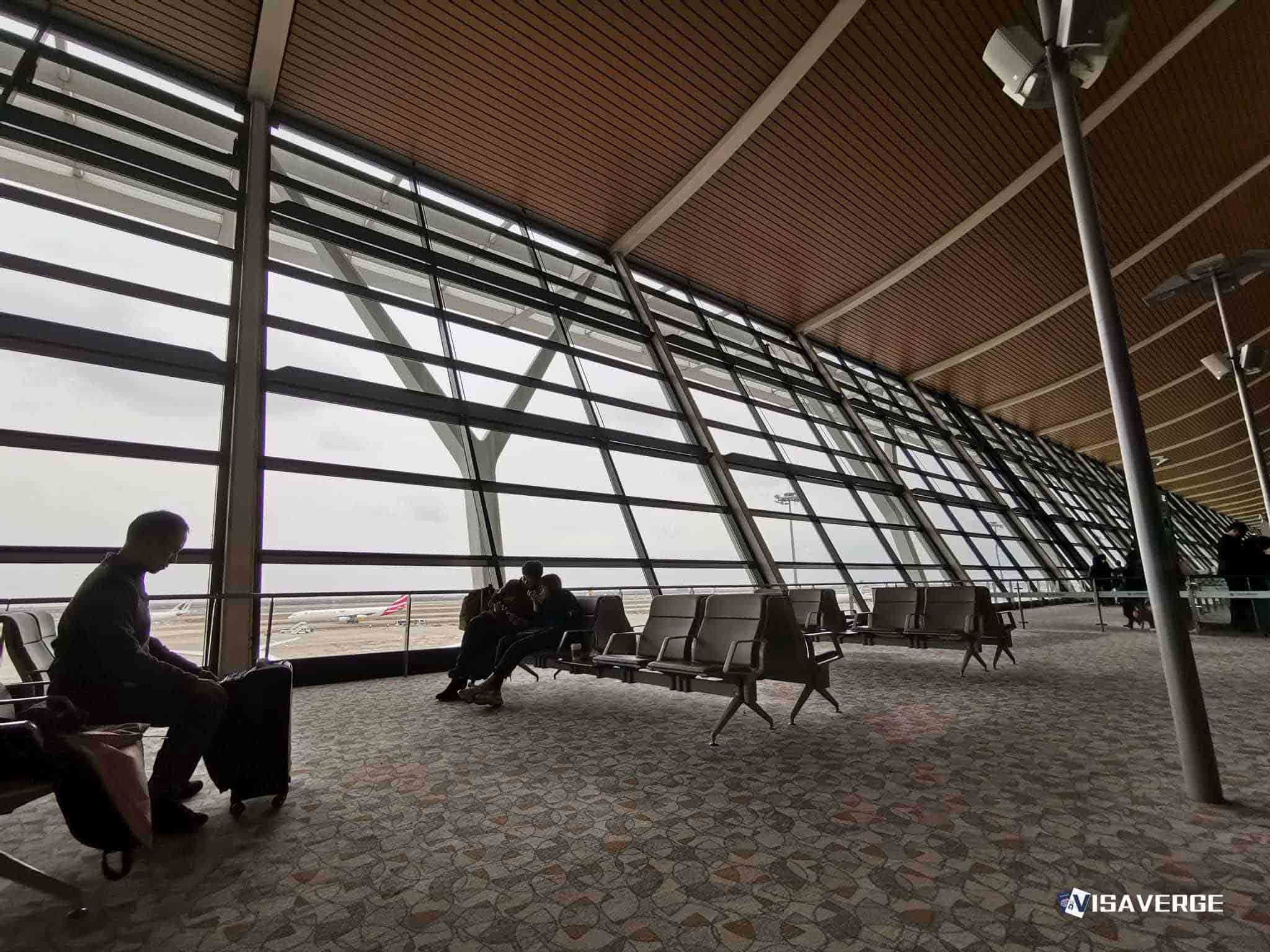Canadian Authorities Deport Iranian Official Amidst Tensions
In a recent development that highlights the growing tensions between Canada and Iran, an Iranian official has been deported from Canada, sparking a controversy as the individual questioned the Canadian immigration authorities about the rationale behind granting a visa only to subsequently face deportation.

Iranian Official Challenges Deportation Decision
The unnamed Iranian official expressed indignation upon being expelled from Canadian territory, confronting the authorities with the critical question: “Why did you give me a visa?” This rhetorical query underscored the official’s frustration and confusion regarding the Canadian government’s decision-making process.
The incident has further strained the already delicate relations between the two countries and underscores the increased scrutiny being directed at Iranian government officials on an international stage. The deportation aligns with a broader trend of sanctions against Iranian government officials in response to ongoing concerns about human rights violations perpetrated by the Iranian regime.
Escalating Actions Against Human Rights Violations
Canada’s stance in this matter is reflective of the global concern regarding the human rights violations attributed to the Iranian regime. The consequences faced by Iranian officials abroad are becoming increasingly severe as the international community seeks to hold the regime accountable. Sanctions and repercussions, such as deportations, are mechanisms being employed to signal disapproval and exert pressure on the government of Iran to address these persistent issues.
The handling of this situation by Canadian immigration authorities can be viewed as part of a concerted effort to align with broader sanctions against the Iranian regime, aimed at compelling changes in behavior, particularly concerning human rights practices.
Balancing Diplomatic Protocol and Human Rights Priorities
This incident raises questions about the diplomatic intricacies of offering visas to representatives of controversial governments only to later retract access based on policy shifts or public pressures. It reflects the delicate balance that nations must maintain between engaging with international counterparts and upholding moral standards regarding human rights violations.
While the specific reasons behind the visa grant and the subsequent deportation have not been detailed by Canadian officials, such actions suggest a rigorous re-evaluation of the engagement with Iranian representatives within the context of their regime’s record on human rights.
Conclusion
The deportation of an Iranian official from Canada caps a series of international reprimands aimed at sanctioning Iran for its human rights infractions. As countries worldwide grapple with the challenge of engaging with regimes accused of such violations, Canada’s response to the situation demonstrates a firm stance in favor of human rights, reflecting a commitment to ethical international relations that may have broader implications for the Iranian regime and its global interactions.
Learn Today:
Glossary or Definitions:
- Deportation: The act of forcibly removing an individual from one country to another, usually due to immigration violations, such as unauthorized entry or the violation of immigration laws.
-
Visa: Official permission granted by a country to a foreign citizen, allowing them to enter, stay, and leave the country within a specified period for a particular purpose, such as tourism, business, or study.
-
Iranian Regime: Refers to the government and political system of Iran, including its leadership, policies, and institutions.
-
Sanctions: Measures imposed by one country or a group of countries to restrict or punish another country, often for reasons related to human rights violations, national security concerns, or economic issues. Sanctions can include travel bans, asset freezes, and trade restrictions.
-
Human Rights Violations: Actions or practices that infringe upon the fundamental rights and freedoms of individuals, as recognized by international law. These violations can range from torture, arbitrary detention, and discrimination to restrictions on freedom of speech, religion, and assembly.
-
Critical Question: In this context, a rhetorical question that challenges or expresses frustration toward the authorities, emphasizing the lack of clarity or rationale behind their actions or decisions.
-
International Community: Refers to the collective body of countries and international organizations that interact and collaborate on global issues, including human rights, diplomacy, and governance.
-
Diplomatic Protocol: A formal set of rules and practices that govern interactions between nations and their representatives, usually related to official events, ceremonies, and negotiations.
-
Moral Standards: Ethical principles and values that guide a society’s behavior and judgments, usually based on a concept of right and wrong.
-
Ethical International Relations: The application of moral principles and ethical considerations in conducting international relations, particularly in areas such as human rights, social justice, and the promotion of peace.
-
Regime: Refers to a government or political system, often used to describe a government with authoritarian or oppressive characteristics.
-
Infractions: Violations or breaches of laws or regulations.
-
Unauthorized Entry: Entering a country without proper legal authorization, such as a valid visa, permit, or entry document.
-
Immigration Violations: Actions or behavior that go against immigration laws and regulations, including unauthorized entry, overstaying a visa, or providing false information on immigration applications.
Well, folks, it looks like tensions between Canada and Iran continue to simmer. An Iranian official was recently deported from Canada, leaving us all scratching our heads. The incident sheds light on the international community’s mounting concerns over human rights violations in Iran. If you’re curious to dive deeper into the complex world of international relations, visa policies, and immigration, head over to visaverge.com. Trust me, there’s a lot more to explore!
This Article in a Nutshell:
Amid tensions, a deported Iranian official questions Canadian immigration authorities, sparking controversy. Reflective of global concerns over human rights violations, the deportation signals a stance against the Iranian regime’s actions. Balancing diplomatic protocol and holding regimes accountable is a delicate task for nations.








